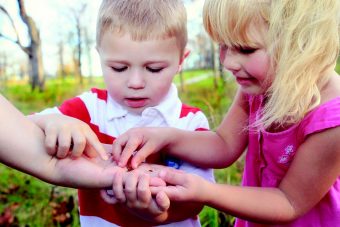
On World Environment Day, UNESCO unveils new tools for greening schools and curricula, highlighting the need to empower young people to play a concrete role in tackling the climate crisis.
Greening schools and curricula is one of the best levers to tackle climate disruption in the long-term. It’s time to mainstream environmental education across school subjects, at all levels of education with an action-oriented approach that helps young people understand their power to make a difference.
A UNESCO analysis of 100 national curriculum frameworks in 2021 revealed that nearly half (47 per cent) do not mention climate disruption. Only 23 per cent of teachers felt able to properly address climate action in their classrooms and 70 per cent of young people surveyed could not explain climate disruption, and expressed concerns about the way in which it is currently taught.
More:
- 2023 ENVIRONMENTAL PROTECTION INVESTMENT: 67 BILLION EUROS
- BREATHING IN POLLUTED AIR IN PREGNANCY COMMON CAUSE OF INCREASINGLY PRESENT MENTAL ILLNESSES IN CHILDREN
- FIT FOR 55: COUNCIL GIVES FINAL GREEN LIGHT TO CUT METHANE EMISSIONS IN THE ENERGY SECTOR
Following this analysis, Audrey Azoulay, Director-General of UNESCO, made environmental education a priority in terms of the support which the Organization provides to its Member States. UNESCO has been leading the Greening Education Partnership, that more than 80 Member States have now joined and enables collaboration between more than 1,300 organizations, including UN agencies, civil society and youth organizations, as well as the private sector. This community provides countries with essential tools for strengthening the role of education in tackling climate disruption.
If significant progress has been made over the past three years by UNESCO Member States to integrate environmental topics across curricula, a new report co-published by the Organization cautions that formal education has focused too much on imparting knowledge about environmental issues, rather than driving action, and is failing to show learners the role they can play in tackling the climate crisis. The report argues that sustainable development education must also focus on first-hand experiences which are more likely to lead to change.
Source: UNESCO



